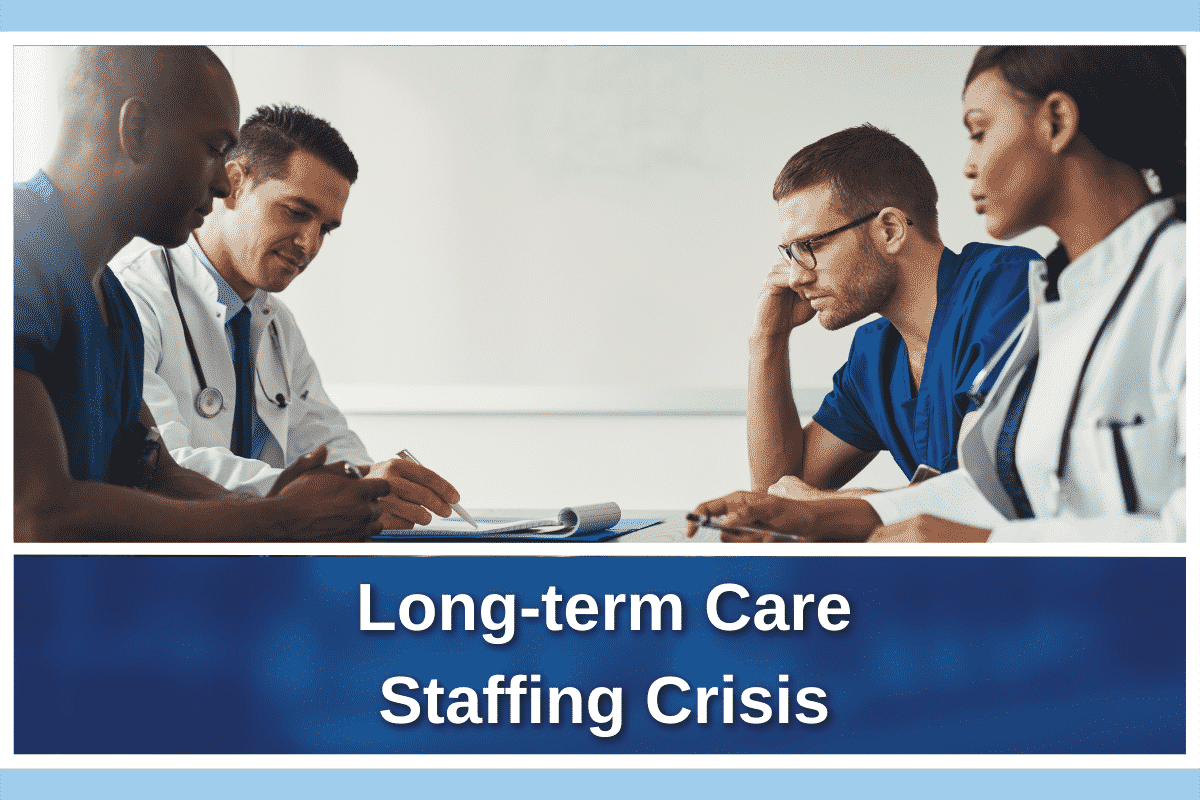March 25, 2022 – In the last couple of years, we have seen the coronavirus pandemic stretch and exhaust the healthcare industry past any semblance of what it used to look like. The ramifications of the current state of the healthcare system will likely be felt for many years to come, especially in the long-term care sector. Long-term care is currently going through what experts are calling a dangerous staffing crisis that could put the future of this sector of the healthcare industry in jeopardy.
The American Health Care Association and National Center for Assisted Living (AHCA/NCAL) represents over 14,000 nursing homes and assisted living communities across the country that provide care to approximately 5 million people each year. The AHCA/NCAL recently released a report showing that long-term facilities are suffering from the worst labor crisis and job loss of any other health care sector, with an employment level drop by 14% (about 221,000 jobs) since the start of the pandemic.
Staffing levels in other healthcare sectors have fluctuated in the past couple of years, but nursing homes and assisted living facilities are still experiencing substantial job losses. According to a study conducted by the AHCA/NCAL in 2021, 86% of nursing homes and 77% of assisted living providers have said that their workforce situation has gotten worse in recent months, while 58% of nursing homes are even limiting new admissions. This is not only an unsustainable situation for these long-term facilities, but it’s also dangerous and detrimental to a vulnerable part of the population that depends on this industry.
In a media release, Mark Parkinson, president and CEO of AHCA/NCAL, said, “As many caregivers are getting burned out by the pandemic, workers are leaving the field for jobs in other healthcare settings or other industries altogether. Chronic Medicaid underfunding, combined with the billions of dollars providers have spent to fight the pandemic, have left long-term care providers struggling to compete for qualified staff.

